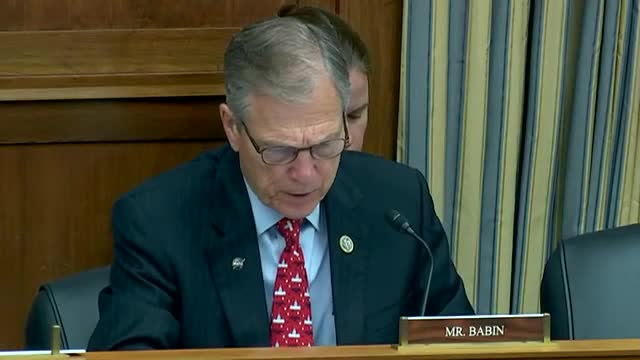Biden administration faces LNG export dilemma amid global tensions
June 27, 2024 | Science, Space, and Technology: House Committee, Standing Committees - House & Senate, Congressional Hearings Compilation

This article was created by AI summarizing key points discussed. AI makes mistakes, so for full details and context, please refer to the video of the full meeting. Please report any errors so we can fix them. Report an error »

The Biden administration reaffirmed its commitment to supplying liquefied natural gas (LNG) to the European Union, despite recent concerns raised by a German state-owned energy group that signed a contract for Russian gas until 2040. The CEO of the energy group expressed worries about the U.S. administration's pause on LNG exports, questioning how this aligns with supporting allies amid ongoing geopolitical tensions.
In response to the pause, Qatar announced plans to significantly expand its LNG export capacity, raising questions about the U.S. strategy in the global energy market. Critics highlighted the potential implications of the pause, suggesting it could inadvertently support Russia's war efforts in Ukraine as European nations and other allies turn to alternative sources of natural gas.
The U.S. has seen a remarkable increase in LNG exports, growing from 4 billion cubic feet per day to approximately 15 billion cubic feet per day, with projections to reach 26 billion cubic feet per day as new projects come online. However, the administration noted that European countries have reduced their natural gas consumption by 20% over the past five years, while Japan's demand has plateaued. The primary growth market for U.S. LNG is anticipated to be China, which is expected to increase its LNG imports by 65% by 2030.
The administration is currently conducting an analytical review to assess the environmental and economic impacts of the export pause, emphasizing the need for informed public interest determinations. This analysis aims to balance domestic consumer prices, which are significantly lower than those in Asia and Europe, against the potential benefits of increased exports.
Concerns were raised during the meeting about the long-term implications of restricting LNG exports, with some officials arguing that it could limit investment in natural gas production and reduce leverage over adversaries reliant on energy imports. The discussions underscore the complexities of U.S. energy policy in a rapidly changing global landscape, as officials seek to navigate economic interests while addressing international security challenges.
In response to the pause, Qatar announced plans to significantly expand its LNG export capacity, raising questions about the U.S. strategy in the global energy market. Critics highlighted the potential implications of the pause, suggesting it could inadvertently support Russia's war efforts in Ukraine as European nations and other allies turn to alternative sources of natural gas.
The U.S. has seen a remarkable increase in LNG exports, growing from 4 billion cubic feet per day to approximately 15 billion cubic feet per day, with projections to reach 26 billion cubic feet per day as new projects come online. However, the administration noted that European countries have reduced their natural gas consumption by 20% over the past five years, while Japan's demand has plateaued. The primary growth market for U.S. LNG is anticipated to be China, which is expected to increase its LNG imports by 65% by 2030.
The administration is currently conducting an analytical review to assess the environmental and economic impacts of the export pause, emphasizing the need for informed public interest determinations. This analysis aims to balance domestic consumer prices, which are significantly lower than those in Asia and Europe, against the potential benefits of increased exports.
Concerns were raised during the meeting about the long-term implications of restricting LNG exports, with some officials arguing that it could limit investment in natural gas production and reduce leverage over adversaries reliant on energy imports. The discussions underscore the complexities of U.S. energy policy in a rapidly changing global landscape, as officials seek to navigate economic interests while addressing international security challenges.
View full meeting
This article is based on a recent meeting—watch the full video and explore the complete transcript for deeper insights into the discussion.
View full meeting